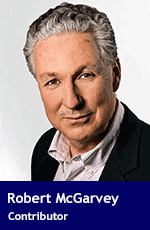 The 21st century just might be Canada’s, in much the same way the 20th century belonged to the United States.
The 21st century just might be Canada’s, in much the same way the 20th century belonged to the United States.
As Canada enters into its maturity as a nation, it could provide much-needed moral authority and a few groundbreaking ideas just when the world desperately needs them.
It’s been a long time since former U.S. President Abraham Lincoln described the United States as “the last best hope” for mankind. At the end of the Civil War in 1865, the U.S. began its rise to global leadership, fuelled by its own ascendant moral authority and swagger.
America championed a host of radical ideas that opened the floodgates for western civilization. That included a new egalitarian form of capitalism that was open to all who had the will to succeed, and a homesteading program that created property ownership opportunities for millions of poor, dispossessed peoples.
The moral authority that the U.S. owned was born of its noble founding ideals, which inspired many; the Civil War-era Emancipation Proclamation, which abolished slavery; and the social and political equality that emerged in the new world, a realization of Enlightenment ideas circulating at that time.
The American republic looked young in comparison to the fragmented and reactionary European monarchies of the mid-late 19th century. The Statue of Liberty was symbolic of this positive social promise, emblematic of the New World and a better life for millions of immigrants escaping tyranny.
Today, the United States looks tired, morally bankrupt and unable to generate new ideas to could lift the world out of its death spiral. President Donald Trump, flawed and vindictive, is the true representative of an inward-looking America that has lost faith in the “better angels” of its character.
Britain, likewise, has entered a period of cultural uncertainty and moral decline. Brexit has unleashed a tidal wave of malice and petty nationalism that threatens to not only unravel the European Union but possibly blow apart the United Kingdom.
Although there are other rising economic and military powers in the world these days, including China and Russia, the world looks to the Anglo sphere for progressive role models. And Canada represents a positive model upon which to build the tolerant, multi-ethnic civilizations of the future.
It might have something to do with our almost unlimited space – and perhaps our harsh winters – but Canadians are more welcoming of newcomers and more tolerant of diversity than other nationalities.
Certainly, immigrant-rich nations in Europe are multicultural but they’re multicultural in much the same way Yugoslavia was: collections of isolated groups living almost entirely separate lives.
Canada, then, is more accurately described as a multi-ethnic society.
Canadians embrace immigrants, weaving them into the very fabric of their society. Unlike Americans, Canadians don’t force-feed the melting pot idea. Rather, we trust that, as always in our history, the immediate differences will diminish as the forces of Canada’s value system and cultural harmonization work their magic, through democratic institutions like our well-funded public school systems.
But as valuable as these attributes are, they won’t be enough to create a Canadian Century. For that, Canadians will have to step out of their innate conservatism to revolutionize the world’s capitalist system and social order.
Modern capitalism is broken. It’s concentrating wealth in the hands of the one-percenters while a deeply flawed globalization is hollowing out the industrial heartlands of advanced nations. That has undermined the prospects of a youth that is among the best educated, worldly and creative generations in history.
The world desperately needs to solve these problems. Accomplishing this herculean task is going to require a new mindset, flexibility, innovative genius, moral goodness and guts. These are qualities young Canadians are quite capable of delivering.
Canada has about the same population today as the United States had after its Civil War. We are a young country with vast new physical and societal frontiers to populate.
The social energy to create a new and better Canada, and world, could launch the Canadian Century.
Robert McGarvey is an economic historian and former managing director of Merlin Consulting, a London, U.K.-based consulting firm. Robert’s most recent book is Futuromics: A Guide to Thriving in Capitalism’s Third Wave.
Robert is a Troy Media contributor. Why aren’t you?
The views, opinions and positions expressed by columnists and contributors are the author’s alone. They do not inherently or expressly reflect the views, opinions and/or positions of our publication.


